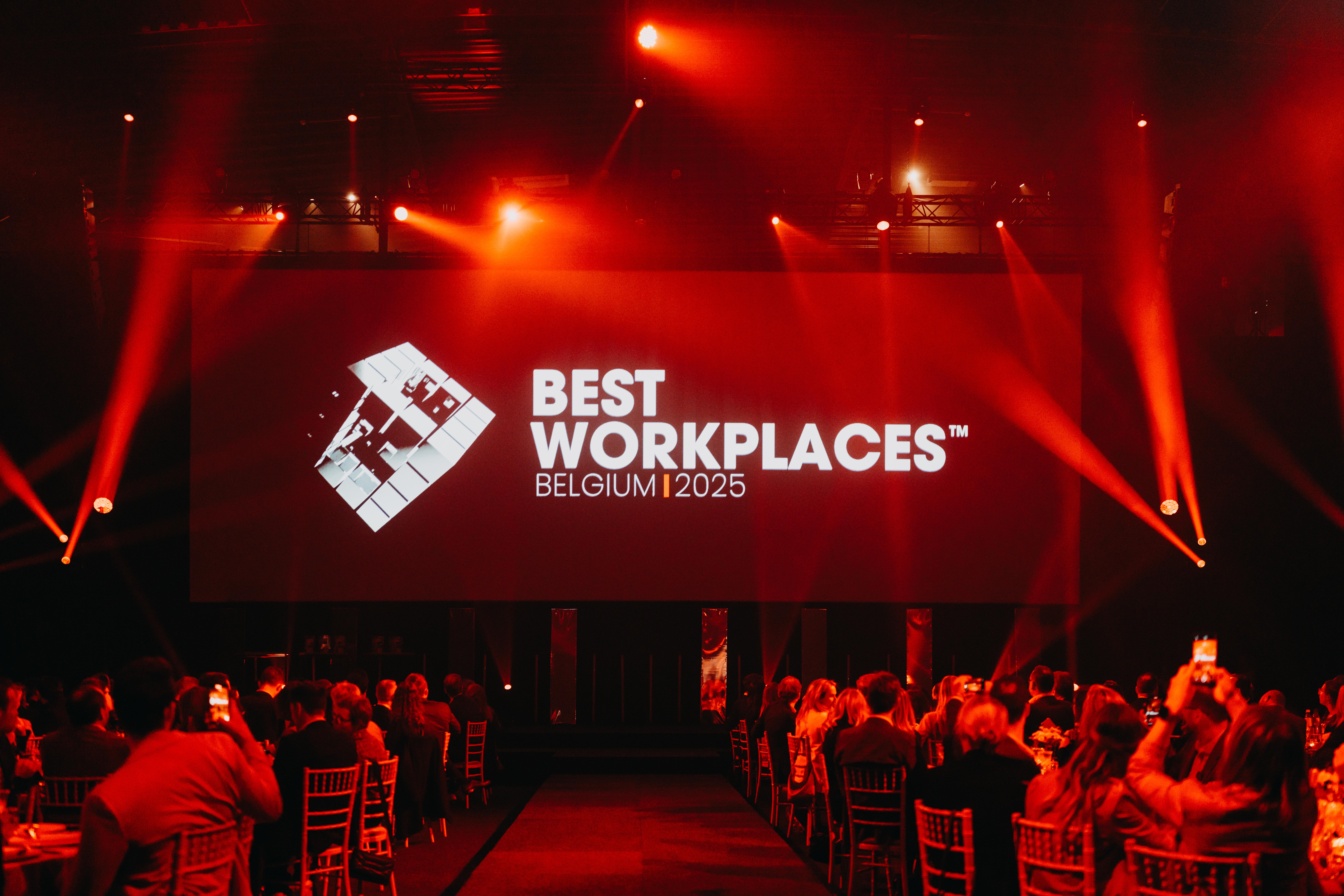What truly makes a company a great workplace? The definition of a good employer is constantly evolving. Social developments, technological advancements, and changing employee expectations play a significant role in this.
Every year, Great Place To Work searches for the most progressive organisations in Belgium that stand out as a “Best Workplace”. In this blog, we highlight seven trends that characterise our Best Workplaces of this year.
Discover the Best Workplaces of 2025
1. Wellbeing and job satisfaction.
To ensure a healthy company culture, more and more companies are investing in holistic well-being initiatives such as:
- flexible wellbeing budgets;
- psychological support;
- menopause guidance;
- on-site physiotherapists;
- nutritional support;
- family support and daycare facilities;
- Employee Assistance Programs (EAP);
- ...
Additionally, there is a greater focus on preventive policies, with training for managers to recognise and address early signs of burnout.
2. Social engagement in the workplace.
Within the various stages of personnel policy, there are three key trends in terms of (employee) engagement:
- Pre-boarding initiatives: Welcome packages, introductory meetings, and invitations to company events create a sense of belonging even before the first working day.
- Onboarding: Employee engagement is encouraged from the start by having new employees spend more time in the office during their first months, for example through weekly lunch meetings.
- Alumni network: Former employees remain involved through structured alumni programmes, such as annual reunions.
3. Shifts in the workplace.
More and more companies are focusing on making office work more attractive, gradually shifting the focus from working from home to creating an inspiring and connecting work environment. Through initiatives such as “Lunch and Learn” sessions and social events, organisations are trying to increase employees' motivation to come to the office. In some organisations, employees are even actively involved in designing office spaces to make the workplace more comfortable and attractive.

4. Buzzwords and ambassadorship (integration with Employer Branding).
Organisations are increasingly striving to create a unique identity. Internal tools with a dedicated name and branding, including customised hashtags like #companyname, are no longer the exception. Branded merchandise such as t-shirts, notebooks, mugs, socks, and sneakers are given to employees. Giveaways and competitions, such as a design contest for new company merchandise, are organised to increase employee engagement. Additionally, employees are encouraged to act as brand ambassadors by sharing their experiences and success stories, thus externally promoting the “employee journey”.
5. AI and technology.
While the rise of AI is clearly noticeable, significantly fewer new AI programmes have been launched this year. Large-scale AI initiatives at the company level are, for now, still absent. However, companies are implementing individual tools like 'Copilot', carefully considering GDPR, privacy, bias, and equality. With a view to an overall better employee experience, they are adopting a cautious approach to minimise ethical risks.
6. Strategic budget allocation.
Inflation and indexations are forcing organisations to allocate budgets more sharply. Data-driven decision-making, supported by in-depth analyses and employee surveys, helps organisations optimise cost structures. Additionally, some companies are implementing a flexible office space policy, reducing the number of physical locations, and promoting hybrid work models with structured office days.
7. Social impact and sustainability.
Sustainability and social impact are becoming increasingly important and are gaining a significant place within organisations. Companies are setting higher sustainability goals and imposing stricter requirements on suppliers, such as the use of environmentally friendly materials and transparent reporting on their sustainability efforts.
Additionally, in some organisations, employees who are not involved in active company projects can spend a few hours per month on volunteer work, promoting social engagement and personal fulfilment. Moreover, employees can propose CSR initiatives, with the organisation selecting projects to support. These initiatives often focus on personal and social issues that go beyond the core activities of the company.
To foster a culture of openness and continuous improvement, organisations are also increasingly sharing knowledge through podcasts, guest lectures, and applied research projects.
By responding to these trends, organisations aim not only to attract and retain talent but also to create a work environment where employees feel good and can develop to their fullest potential.
Ready to start your 'journey'? Get inspired, This email address is being protected from spambots. You need JavaScript enabled to view it. and take the first step in your trajectory.

